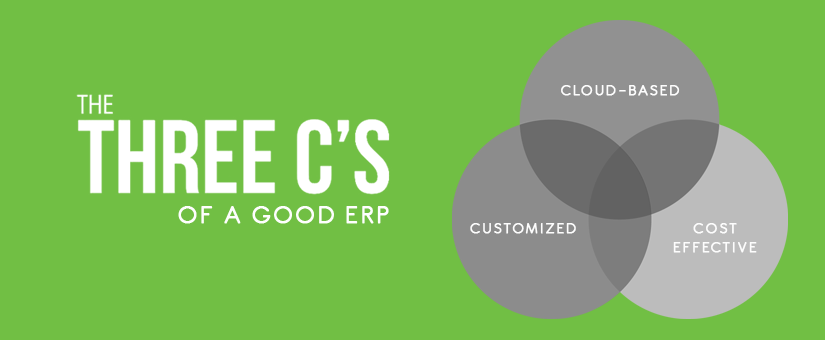Irrespective of the size and type of the business, every organisation invariably performs the primary function of managing people, products, and services. An integrated software platform makes it much more useful to handle these processes as compared to multiple applications working on each of these verticals. This is where Enterprise resource planning (ERP) systems come in.
While a functional ERP can have multiple features, here are the 3C's that a robust ERP system must have:
- Customized ERP
Every business or organisation operates in its unique style, depending upon factors such as the size of the business and the workload they carry towards expanding their operations. Customized ERP software solutions offer an excellent way, which can be created as per the specific needs of the business to ensure that the same workflows are in place.
Among the other benefits of having a customized ERP solution include-
- With customized ERP software, there is no need to change the business flows, meaning you can implement ERP software as per your requirement
- ERP customization allows you to remove the unnecessary or unwanted features to gain maximum out of the software and minimize confusion among various departments
- Cloud-based ERP
This is one of the most important criteria when choosing ERP software. Having a robust ERP system, that is cloud-based, allows the users to access it from anywhere with the only requirement being functional internet connectivity.
Among the other advantages of having a cloud-based ERP software include-
- Reduced expenses
In cloud-based ERP solutions, everything is based offsite, leading to a reduction in the IT infrastructure costs as it does not require any expensive server and network hardware/software.
- Enhanced security
With a cloud-based ERP system, everything can be accessed on secure portals and dashboards instead of ease-to-lose spreadsheets or smart devices. This makes your data more secure as it is being stored on an offsite server with features like automatic back up and continuous monitoring.
- Improved productivity
Whether it is managing customer relationships, accounts, stocks, or sales orders, cloud-based ERP allows you to access it from anywhere. This helps in streamlining the business function, making it much more productive & efficient.
- Cost-effective ERP
Costing is an essential criterion while selecting the right ERP solution suitable to your business needs. Before making the final decision, however, it is crucial to determine a rough estimate of the ROI and evaluate the overall cost-effectiveness of the ERP platform, and whether it is suitable for the functionalities it offers.
Some important considerations for making an appropriate choice of a cost-effective ERP solution include-
- Whether the ERP implementation charges will be one-time or recurring and how affordable it is to use the system on a continuous basis.
- Take into account the charges for upgrades as well as annual maintenance.
- Are there any hidden costs that are not immediately apparent?
- What is the long-term total cost of ownership (TCO) for various aspects of the ERP system, including hardware, software, as well as support?
While the overall cost of the ERP system and implementation might be the topmost priority for many businesses, it is vital that you choose the right ERP for your business, not necessarily the cheapest one.
While pricing should be an essential factor when it comes to the overall decision, remember that the benefits that a sound ERP system can have in terms of total profits and business productivity outweigh the initial investment cost.
To Wrap Up
Although the individual business objectives and business models are important to keep in mind while researching on the features & components you want to have in an ERP system, the 3 Cs mentioned above should be your primary consideration to rate it as the best ERP system. Subsequently, the rest will automatically follow in as per the business requirements.
